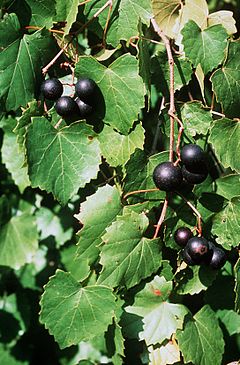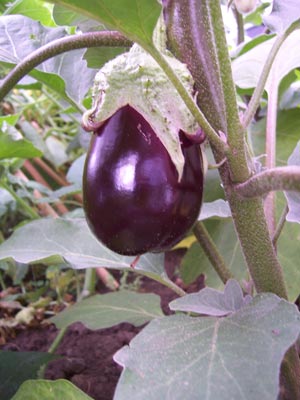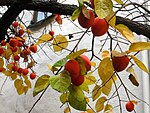Here is a list of the top 10 edible plants to grow in Florida, as outlined in
Sunset's Florida Top 10 Garden Guide. According to the zone map in the Sunset book, I live in zone 25, which is the warmest zone in Florida. Most of Florida is zone 26, with northern Florida mainly being zone 28.

Green and Lima Beans: Peak season is late winter through late fall in warmer areas of the state; May through October in cooler areas. Bush Blue Lake and Contender varieties are the two overall best bush beans for Florida's climate and soils. Others that grow well here are: Cherokee Was, October Glory, Purple Bush and Roma II. Fordhook 242 is the preferred lima for this area. The preferred pole beans are Kentucky Wonder (deemed the best snap variety), with Dade and Blue Lake as close seconds. Florida Butter is a good pole lima bean. Plant them with other warm-season vegetables, such as tomatoes, cantaloupe, collards, okra, eggplant, cucumbers and peppers.

Blackberries: Peak season is May and June. Best thornless is Apache, Arapaho, and Navajo. Chester is cold hardy. Best thorny blackberry is Chicksaw. Plant blackberries towards the back of a vegetable garden, or wherever they have space. To expand your fresh fruit options consider combining blackberries with fruits such as peaches, nectarines, pears, blueberries, and grapes. (Not for zone 25)

Blueberries: Harvest season for rabbiteye blueberries extends May to July. The harvest season for highbush blueberries is April through May. Emerald is the best for areas from Ocala to Sebring. Jewel grows well in mild-winter regions. Millennia is one of the most widely-planted varieties in north-central Florida. Beckyblue, Bonita and Climax are three early-season "Rabbiteye" varieties. Equally good but later-ripening cultivars include Brightwell, Powderblue, Tifblue and Woodard. Blueberries are typically used in the landscape as hedges for screening, but can also be used in cluster plantings or as single specimens. (Not for zone 25)

Broccoli: Peak season is October through April, withstanding freezing down to 25 degrees. Favorite varieties for Florida include Waltham 29, Packman, Green Comet, Spartan Early, Atlantic, Green Sprouting, DeCicco, and Green Duke. Plant with other cold-tolerant vegetables, such as carrots, cauliflower, collards, onions, kohlrabi, and cabbage, and with herbs such as thyme, cilantro and rosemary.

Cabbage: Peak season is fall to spring. Best varieties are Chieftan Savoy, Copenhagen Early, Early Jersey Wakefield and Red Acre. Plant with other cold-tolerant vegetables such as kohlrabi, collards, onions, cauliflower, bok choi, mustard and carrots, and with herbs such as thyme and cilantro.

Lettuce: Peak season is fall to spring. Best butterhead is Buttercrunch, but other good choices are Deer's Tongue and Tom Thumb. Best head lettuce is Great Lakes. Best leaf lettuces are Black Seeded Simpson, Oak Leaf, Red Salad Bowl and Red Sails. Best romaine is Parris Island Cos, Valmaine and Dark Green Cos. Grow lettuce with cool-weather vegetables, such as carrots, broccoli, turnips, mustard, collards, kohlrabi, onions, cauliflower and cabbage.

Muscadine Grapes: Peak season is fall. Fry is a bronze grape that is large and very sweet. Nesbitt is black, medium sized, and high-yielding. Southern Home is black-fruited. Summit is an outstanding bronze selection for the home garden. Plant grapevines with other fruits, including blueberries, blackberries, nectarines, plumes, peaches and pears. (Not for zone 25)

Onions: Peak season is spring. Lisbon is the best bunching onion for Florida, and Red Baron is a bright red. For bulbing onions, Candy is extra-sweet, Copra is the best storage onion, and Mars stores well and has a little color. Plant onions with other cool-weather vegetables, such as carrots, cauliflower, collards, kohlrabi and cabbage, and with herbs such as thyme and cilantro.

Strawberries: Peak season is spring. Florida 90 is an older variety, Florida Belle is good for its disease resistance, and Tioga is large and vigorous. Plant strawberries with other cold-hardy vegetables, including broccoli, cauliflower, cabbage, beets, Swiss chard, kohlrabi, lettuce and onions.

Tomatoes: Peak season is summer and fall. Best varieties include Better Boy, Bonnie Best (best in northern Florida), and Manalucie. Other large-fruited varieties are Floramerica, Celebrity and Flora-Dade. Other small-fruited varieties are Red Cherry, Sweet Chelsea, Sweet 100, Floragold, Patio and Roma. Plant tomatoes with other warm-season vegetables, such as beans, corn, cucumbers, eggplants, okra, peppers and squash.
 Did you know that you apparently need TWO eggplant plants in order to produce? I've had an eggplant for awhile now, and while I get blooms nothing ever comes to fruition. However Tina from Garden Goose recently informed me that the problem is that I need a second plant. That's important to know. I'll know better next time.
Did you know that you apparently need TWO eggplant plants in order to produce? I've had an eggplant for awhile now, and while I get blooms nothing ever comes to fruition. However Tina from Garden Goose recently informed me that the problem is that I need a second plant. That's important to know. I'll know better next time.




























